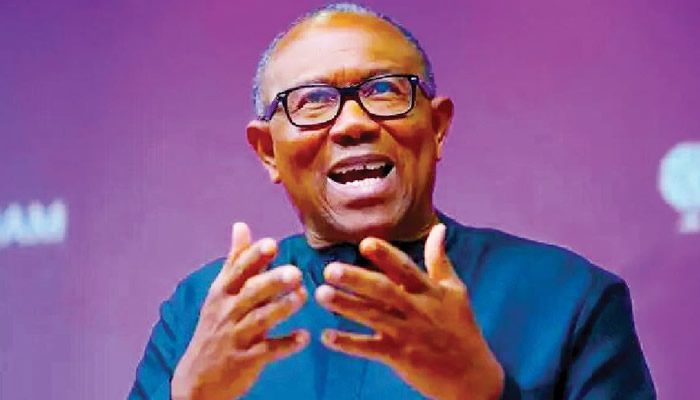Peter Obi, former presidential candidate and Labour Party leader, has launched a scathing critique of President Bola Tinubu’s trip to Saint Lucia, branding it an insensitive and ill-timed excursion amidst escalating national crises. Obi expressed his profound bewilderment at the decision, questioning the administration’s priorities and expressing concern over what he perceives as a disregard for the suffering of ordinary Nigerians. He highlighted the stark contrast between the President’s leisure trip and the dire situation in the country, marked by rampant insecurity, widespread hunger, and devastating natural disasters. He further underscored the irony of the President seeking vacation while neglecting communities grappling with immense loss and hardship.
Obi anchored his criticism on the premise that a leader’s primary responsibility is to the welfare of their citizens, particularly during times of crisis. He condemned what he described as the government’s “obvious indifference” to the plight of the poor, emphasizing the urgent need for a shift in focus from political maneuvering and elite appeasement to addressing the pressing needs of the populace. He specifically pointed to the devastating floods in Minna, Niger State, which resulted in significant loss of life and displacement, and the violent attacks in Makurdi, as instances where the President’s presence and engagement could have provided much-needed solace and support. Instead, Obi argues, the visit to Makurdi was reduced to a political spectacle, failing to offer substantive relief to the affected community.
The former governor of Anambra State contrasted the President’s itinerary with the gravity of the situation on the ground, highlighting the sheer scale of the neglected Nigerian cities compared to the small island nation of Saint Lucia. He noted that Makurdi and Minna are significantly larger than Saint Lucia in terms of both area and population, emphasizing the disproportionate attention given to the Caribbean nation while Nigerian communities remain in dire straits. This comparison serves to amplify Obi’s central argument that the President’s priorities appear misplaced, favoring leisure and international engagements over addressing the pressing needs of his own people.
Obi further questioned the timing of the trip, pointing out that it followed closely on the heels of what he described as a holiday in Lagos. He emphasized the incongruity of a leader seeking relaxation and leisure while his citizens struggle with hunger, insecurity, and the aftermath of natural disasters. This juxtaposition underscores Obi’s critique of the government’s perceived detachment from the realities faced by ordinary Nigerians. He challenged the notion that such a trip could be justified, particularly given the magnitude of the challenges facing the nation.
Obi’s condemnation extends beyond the Saint Lucia trip to encompass what he views as a broader pattern of insensitivity and misplaced priorities within the Tinubu administration. He accused the government of channeling its energy towards the 2027 elections and catering to the wealthy elite while neglecting the growing number of impoverished citizens. He argued that the nation’s resources belong to all Nigerians, not just a privileged few, and called for a decisive shift in focus towards poverty alleviation. He stressed the urgency of addressing the widening gap between the elite and the masses, urging the government to redirect its efforts towards uplifting the most vulnerable members of society.
In closing, Obi called for a national reflection and a redirection of priorities. He implored the nation’s leaders to recognize the gravity of the situation and to prioritize the welfare of the people over political maneuvering and personal leisure. He reiterated his belief that leadership should be anchored in empathy and a sense of urgency, particularly during times of crisis. He warned that the current trajectory of neglect and indifference could have dire consequences for the nation and urged a collective effort to pull people out of poverty and address the multifaceted challenges facing Nigeria. His critique serves as a call to action, urging a re-evaluation of national priorities and a renewed commitment to serving the needs of all Nigerians.


